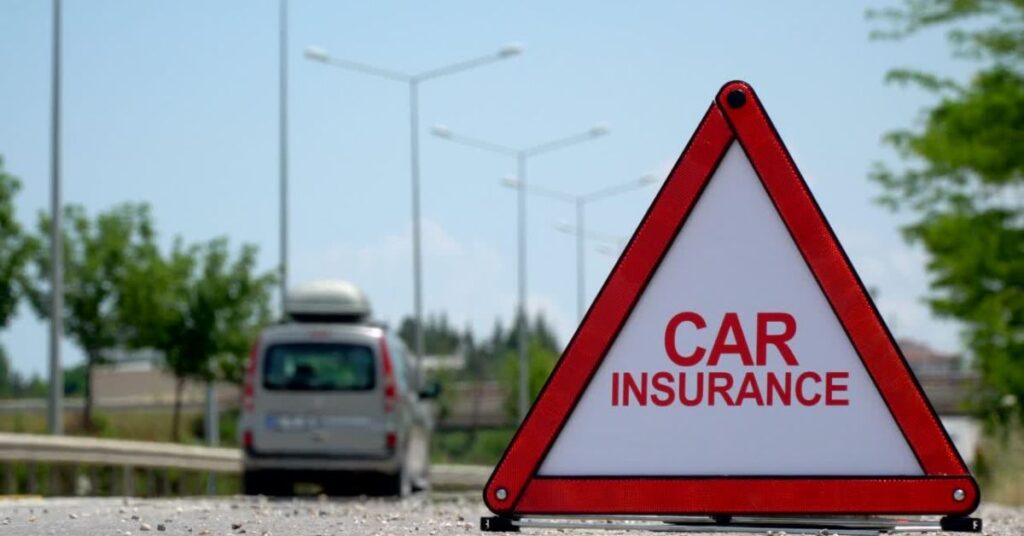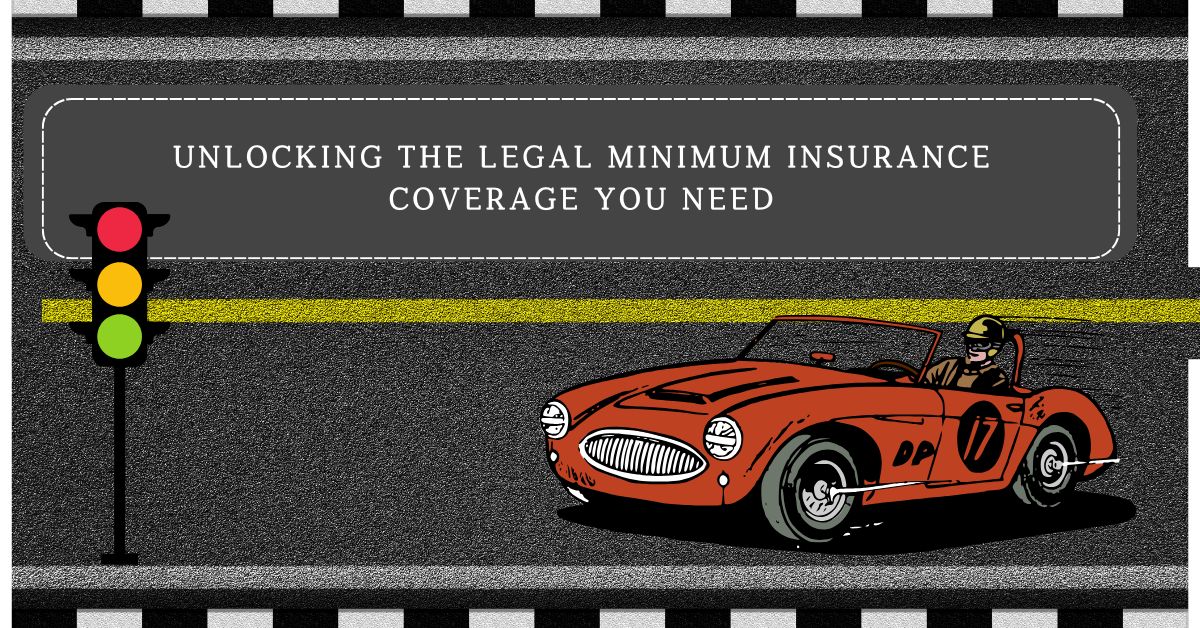Understanding the Legal Minimum Insurance Coverage
When it comes to protecting yourself, having the legal minimum insurance cover is essential. This coverage isn’t just recommended; it’s a legal requirement in many places, including the UK, where car insurance has been mandatory since 1930. Every driver must meet the minimum standards set by regulatory bodies and government agencies. These requirements ensure you’re financially protected in the event of accidents or damages. The required amount of coverage typically includes liability insurance, which helps pay for property damage or bodily injury to others if you’re at fault in an accident.
For businesses, having the right coverage is just as important. Whether it’s part of a contractual obligation or a legal obligation, businesses need to meet general liability standards to protect against liabilities like accidents or property damage. Failing to meet the legal requirements could result in costly fines or lawsuits. Ensuring that you have sufficient coverage to protect yourself and others from potential risks is critical. With the right minimum insurance in place, you safeguard your future from unexpected financial strains.
What’s the legal minimum insurance cover I need for my car?
In many places, including the UK, third-party insurance is the legal minimum insurance cover required for all vehicles on the road. This means that if you’re involved in an accident that causes damage to another vehicle, property, or even injures a person or animal, your insurance will cover the costs. However, it won’t provide coverage for damages to your own vehicle, so you would need separate coverage for repairs. Minimum liability coverage is set by state or insurance law, ensuring drivers meet the lowest required insurance to prevent paying out of pocket after an accident.
States have specific rules that define the amount of coverage needed, and it’s essential to carry acceptable proof of insurance to avoid legal trouble. If you’re caught driving without insurance, you may face serious consequences like the suspension of your driver’s license or even having your license plates revoked. Always check that your insurance policy is active and up-to-date. If it has expired or lapsed, you cannot legally drive, and in many states, drivers are required to show proof of insurance during vehicle registration.
Why Car Insurance is Mandatory

Car insurance is mandatory because it provides financial protection for both road users and others on the road. If you’re involved in an accident, even if it’s not your fault, car insurance ensures you’re not left out of pocket. It covers repairs, medical expenses, and legal fees, preventing you from facing shock or being stuck with large bills. Additionally, it also offers financial protection for others, helping cover damages to their vehicle, property, or even injuries they might sustain.
Requiring car insurance helps reduce the number of uninsured drivers, ensuring safer driving for everyone. By making it mandatory, we ensure that drivers are protected in case of an accident, and that they are able to cover the necessary repair costs without causing financial hardship. It helps to keep the roads safer and provides peace of mind for all involved.
You might also like: What Really Happens When You Report Someone to HMRC?
When Car Insurance Became Mandatory in the UK
Car insurance became mandatory in the UK in 1930 with the introduction of the Road Traffic Act. This law required all drivers to be insured to protect against any physical harm caused to another person due to the use of a vehicle. This was a significant step toward ensuring public safety on UK roads. In 1988, the Road Traffic Act was amended to include compulsory insurance for third-party property damage, further expanding the coverage needed for safe driving.
In the UK, driving without car insurance is considered a criminal offence. If you change any personal information such as your name, address, or occupation, you must update your insurance policy and inform the DVLA to remain compliant. This ensures that your coverage is always valid and your information is up to date.
Types of Car Insurance
When it comes to car insurance, there are several types of policies available, each providing different levels of coverage.
Third-Party Insurance
Third-party insurance is the most basic form of coverage and is required by law for all drivers. This insurance protects you if you’re involved in an accident that causes damage to someone else’s car or injures another person. However, it doesn’t cover your own car or injuries to yourself.
Third-Party, Fire, and Theft Insurance
This type of insurance offers everything that third-party insurance covers, but with added protection. It covers the damage to someone else’s car or injuries caused to others, along with covering your own vehicle if it gets stolen or damaged by fire. It’s a step up from basic third-party insurance, offering more security.
Comprehensive Insurance
Comprehensive insurance is the highest level of protection you can get. It covers you, your car, damage to someone else’s vehicle, and any injuries that you may cause to others. It’s a complete package of protection, ensuring you’re covered in almost all situations.
Specialist Car Insurance Policies
Business Car Insurance
Business car insurance works like standard car insurance, but with additional coverage for when you use your car for work. If you’re driving for your job or making claims for accidents related to work, this type of policy is essential.
Temporary Car Insurance
If you’re borrowing a friend’s car, or test driving a new vehicle, temporary car insurance (also known as short-term car insurance) is a good option. It’s available for durations ranging from 1 hour to 28 days, ensuring you only pay for the time you need the cover.
Do I Need Insurance If I’m Not Driving My Car?
Yes, you generally still need insurance even if you’re not driving your car. However, you don’t need it if you’ve officially declared your car off the road by submitting a Statutory Off Road Notification (SORN) to the DVLA. This is the only way to legally avoid insuring your car. You must make a SORN if your car is not taxed, is not insured, even for a short period of time, or if there is a delay in renewing your policy. Additionally, if you’re planning to dismantle your vehicle for parts before it’s scrapped, a SORN is required.
If you’re buying or getting a car and want to keep it off the road, you can also use a SORN. Just note that you can’t transfer it from the car’s previous owner. When you declare your car as a SORN, make sure it’s parked either on your driveway or in a garage, as you cannot park it on a public road. Driving an uninsured car can result in fines and legal issues, so it’s always important to make sure you’re covered by car insurance.
What to Do If You Get Into an Accident with an Uninsured Driver
If you’re involved in an accident with an uninsured driver, it’s important to take the right steps immediately. Driving an uninsured car is illegal, and if you get hit by one, you need to act quickly. First, call the police within 24 hours to report the accident. Make sure to provide important details such as the date, time, and the other vehicle’s make, model, and registration number. Additionally, gather the driver’s name, address, and note down any damage, driving conditions, and contact details from witnesses.
After contacting the police, reach out to your insurer as soon as possible, even if you don’t want to make a claim. It’s crucial to inform your provider that the other driver is uninsured. You can also contact the Motor Insurers’ Bureau (MIB), which helps you claim against uninsured drivers, hit-and-run drivers, or those driving foreign-registered cars. You have up to nine months to claim for vehicle damage and up to three years for personal injury. Even if you hit an uninsured driver, they can still claim from your policy, but you can still report them to the police for driving without insurance.
Conclusion
In conclusion, car insurance is not only a legal requirement but also a vital tool for protecting yourself, your vehicle, and others on the road. Whether it’s the basic third-party insurance or the more comprehensive options like comprehensive insurance or third-party, fire, and theft, having the right coverage ensures that you’re financially protected in case of an accident or damage. It’s important to understand the different types of car insurance available and choose the one that suits your needs. Additionally, if you’re not driving your car or if you’re involved in an accident with an uninsured driver, knowing the correct steps to take can help you avoid unnecessary legal issues and fines. Ensuring your policy is always up-to-date and active is essential, as driving without proper insurance can lead to serious consequences.
FAQs
1. Do I need insurance if I’m not driving my car?
Yes, you generally need insurance even if you’re not driving your car. However, you can avoid insurance if you submit a Statutory Off Road Notification (SORN) to the DVLA. This legally declares your car as off the road. Ensure your vehicle is parked on your driveway or in a garage to meet the requirements.
2. What’s the legal minimum insurance cover I need for my car?
In most places, including the UK, third-party insurance is the legal minimum required for all vehicles. This insurance covers damage to another vehicle or property and injuries to others, but does not cover your own vehicle.
3. What should I do if I get into an accident with an uninsured driver?
If you’re involved in an accident with an uninsured driver, you should call the police within 24 hours and provide necessary details about the accident. You must inform your insurer and possibly contact the Motor Insurers’ Bureau (MIB) to help with your claim. You also have a limited time to claim for vehicle damage and personal injury.
4. What is comprehensive car insurance?
Comprehensive insurance is the highest level of protection, covering damage to both your vehicle and others. It also covers injuries you cause to others and damage caused by incidents such as fire or theft.
5. Why is car insurance mandatory?
Car insurance is mandatory because it provides financial protection for both drivers and others on the road. It ensures that you’re protected from significant costs resulting from accidents, including medical expenses, vehicle repairs, and legal fees.

